Minimoog Plugins: Nostalgia On Tap
Moog-style softsynths for your DAW...
The one and only Minimoog is the epitome of innovative musical instrument design. We take a look at its heritage in music history and find out how to recreate its iconic sound with the best Minimoog plugins.
In this Article:
If you’ve listened to records released any time between 1970 and the present day, chances are you’ve heard the Minimoog. Its unmistakably warm organic sound is responsible for countless earworms over the years.
That Minimoog magic
At first, synthesizers were seen as obscurities rather than commodities. However, as more music began featuring synth sounds the demand became greater. Bob Moog was one of the engineers that realized the potential early on.
He imagined a tool with diverse sonic potential and was even against using a keyboard in the early Moog designs, as he felt it could limit the user. A natural progression on this journey, the Minimoog was designed as an instrument for any musician to truly make their own.
More than its commercial success, and even its role in music – it was the highly intuitive design that would have a profound influence on music instrument manufacturing and sound synthesis. The Minimoog brought accessibility to a scientific instrument you might have thought you needed a lab coat to play.
Which Minimoog Plugins to use?
The Minimoog is still such a popular sound. So, it only makes sense that there are numerous software instruments with which you can accurately recreate its characteristics. Everyone wants something different in a plugin.
Some softsynths offer huge patch libraries, built-in effects, and expansive interfaces. Others have simple layouts modelled on the hardware and just sound great. Let’s take a look at the benefits of each plugin and find one that fits your workflow:
Minimoog Plugins: Softube Model 72
With Softube’s passion for hyperrealistic component modeling, the renowned Swedish developer brings the sound of the miniMoog to your DAW in the form of the Model 72 plugin.
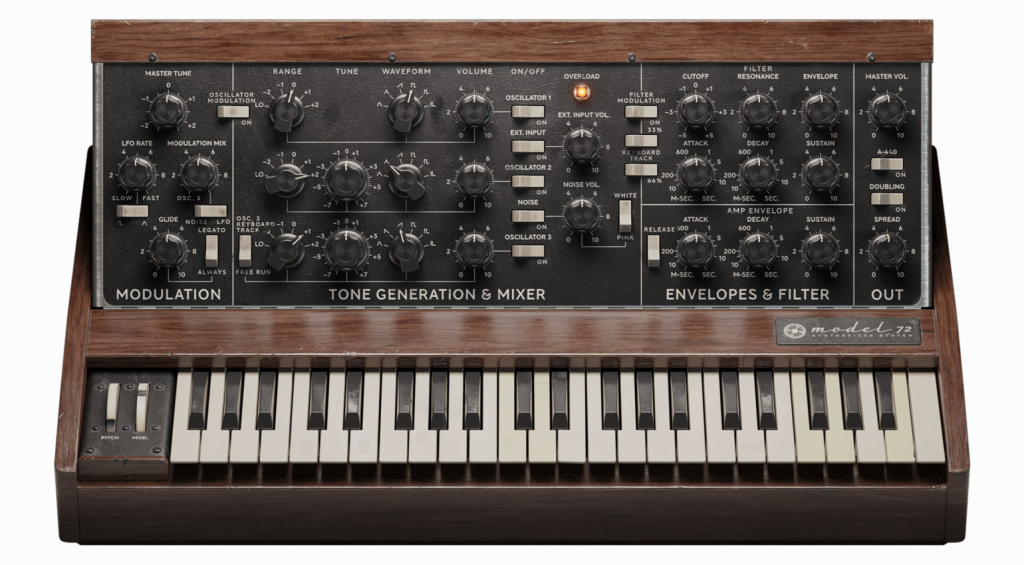
All the irresistibly smooth warm sonic character from the original has been preserved. However, with enhanced features, you can create both vintage and modern sounds for any style of music from Pop to EDM.
By exploring the Model 72 expansion panel, you can access functions like doubling and fine-tuning for a range of parameters. In addition, the Model 72 includes a Model 72 FX plugin, a Model 72 Filter for Softube Amp Room, and a set of seven modules for Softube Modular.
- More from Softube
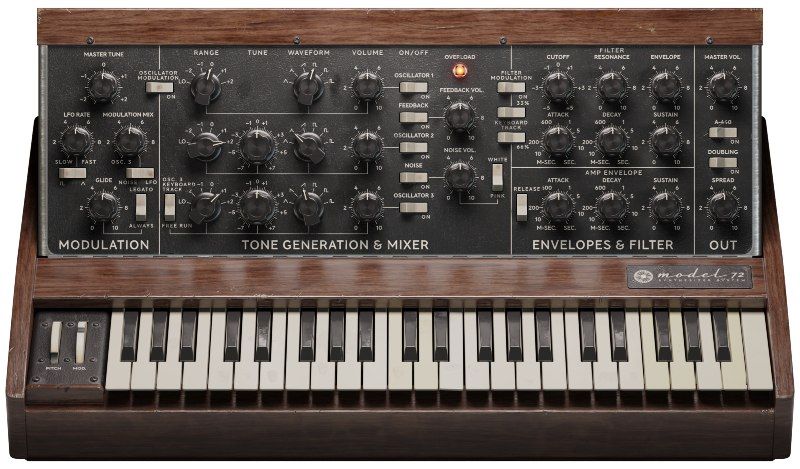
Minimoog Plugins: AAS Ultra Analog VA-3
Those in the know will be familiar with Applied Acoustics Systems(AAS) and its reputation for creating extremely high-quality software instruments. The Ultra Analog VA-3 is a comprehensive virtual analogue workstation with a detailed interface.

When it comes to analogue modelling, this is one of the better softsynths available and not just for creating Minimoog sounds. Here, you have access to a whole range of specialized features for serious analogue sound sculpting.
Ultra Analog gives you a completely modular interface, an arpeggiator, an effects rack, and macro controls. In addition, the patch library has presets from some great sound designers like Richard Devine.
- More from AAS

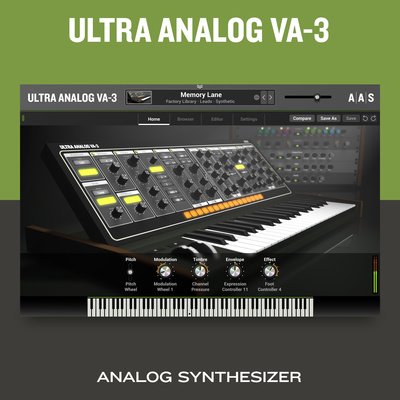
Minimoog Plugins: UAD Minimoog
Now available natively, the UAD Minimoog is one of the most realistic emulations available. It captures the raw character of the original incredibly well and there are a few extra features that make it worthwhile.
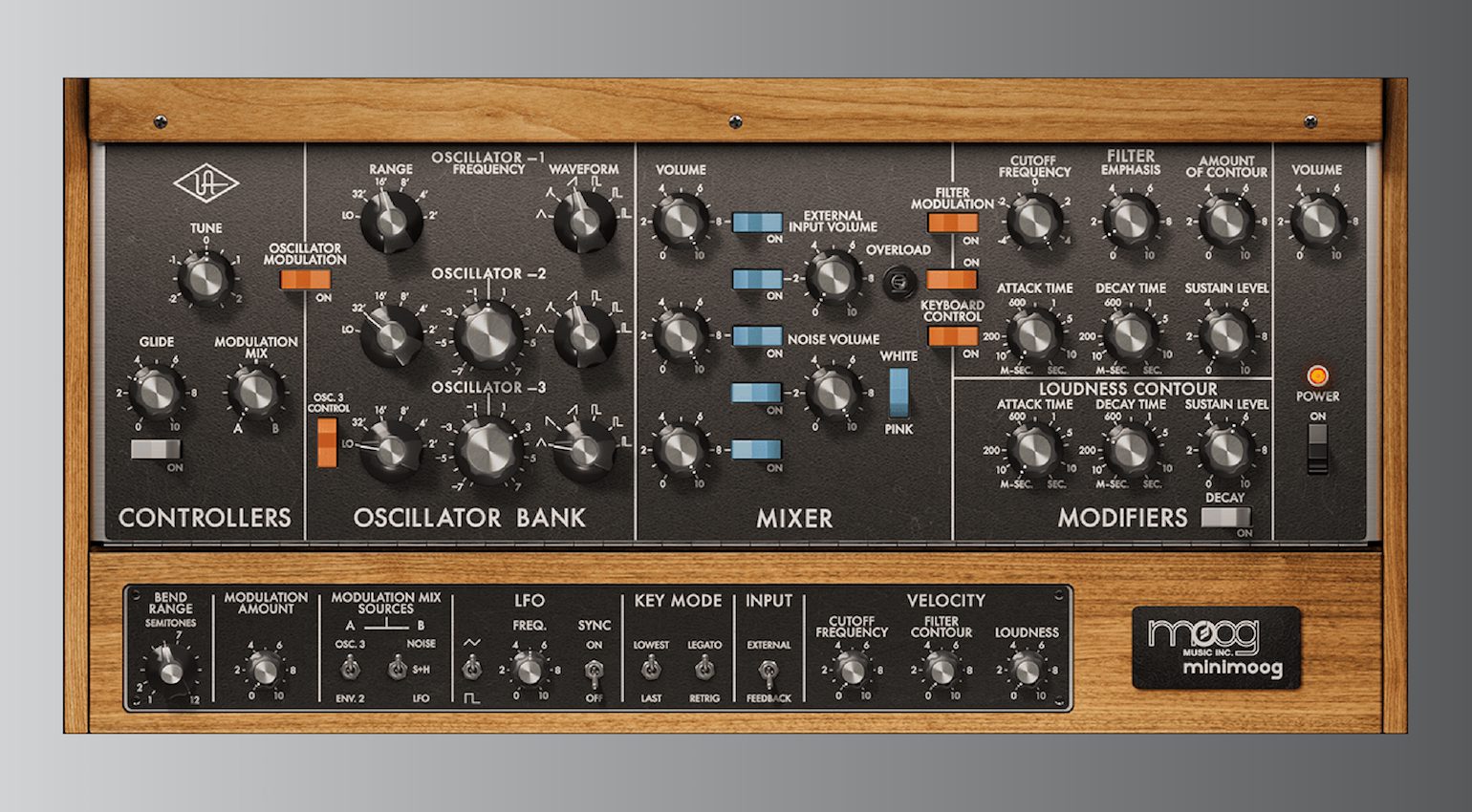
Overall, the sound of the oscillators, the tone of the filter, and the responsiveness of the envelopes all come across realistically.
Moreover, the preset library also has some great-sounding patches and a few additional modulation parameters modeled on the unique customizations of well-known Minimoog users.
- More from Universal Audio
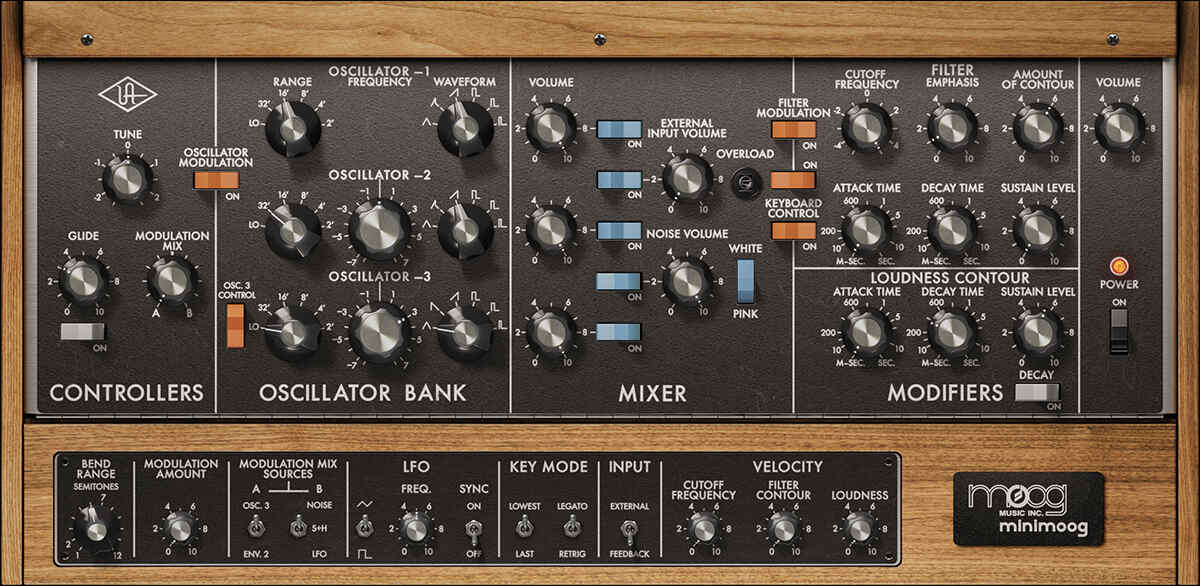
Minimoog Plugins: Native Instruments Monark
If you’re a Reaktor user, you’ll be familiar with Monark. It might not be the most hyper-realistic Minimoog emulation around, but it’s still a great-sounding softsynth.
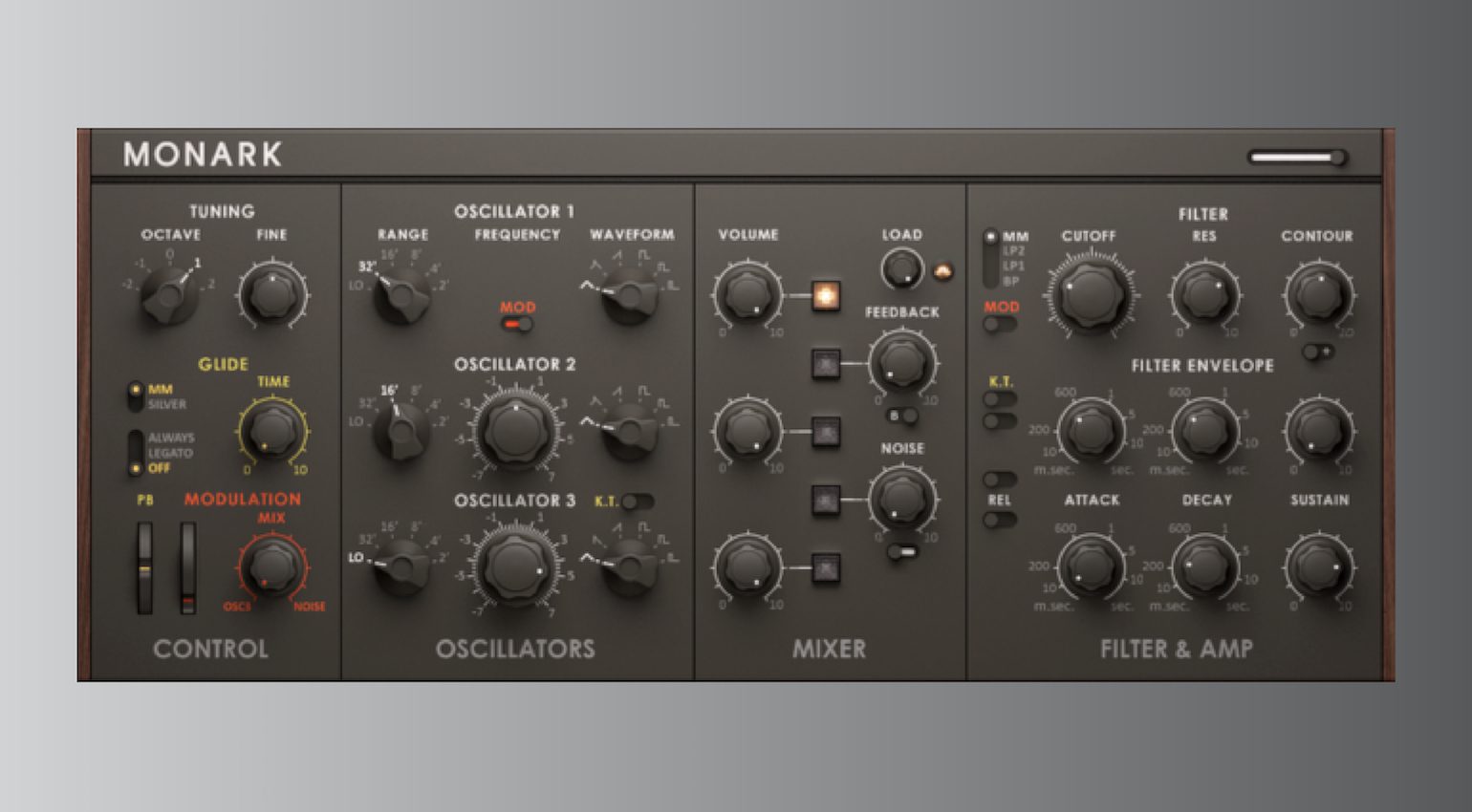
The interface is slightly simplified in areas like the envelope section, however, you can still tune and mix your oscillators to achieve detailed sounds. The layout is presented in a way that gives you great sound manipulation tools without being too technical.
Even if you’ve never seen a real Minimoog, you can get great results. Monark is also available in Reaktor Blocks, which gives you the flexibility to build your own modular synth designs.
- More from Native Instruments


Minimoog Plugins: Arturia Mini V
The Arturia Mini V is one of the original Model D plug-ins. On the surface, it looks identical to the classic, but as you start diving into the features you’ll find it goes far beyond what the Minimoog was designed to do.
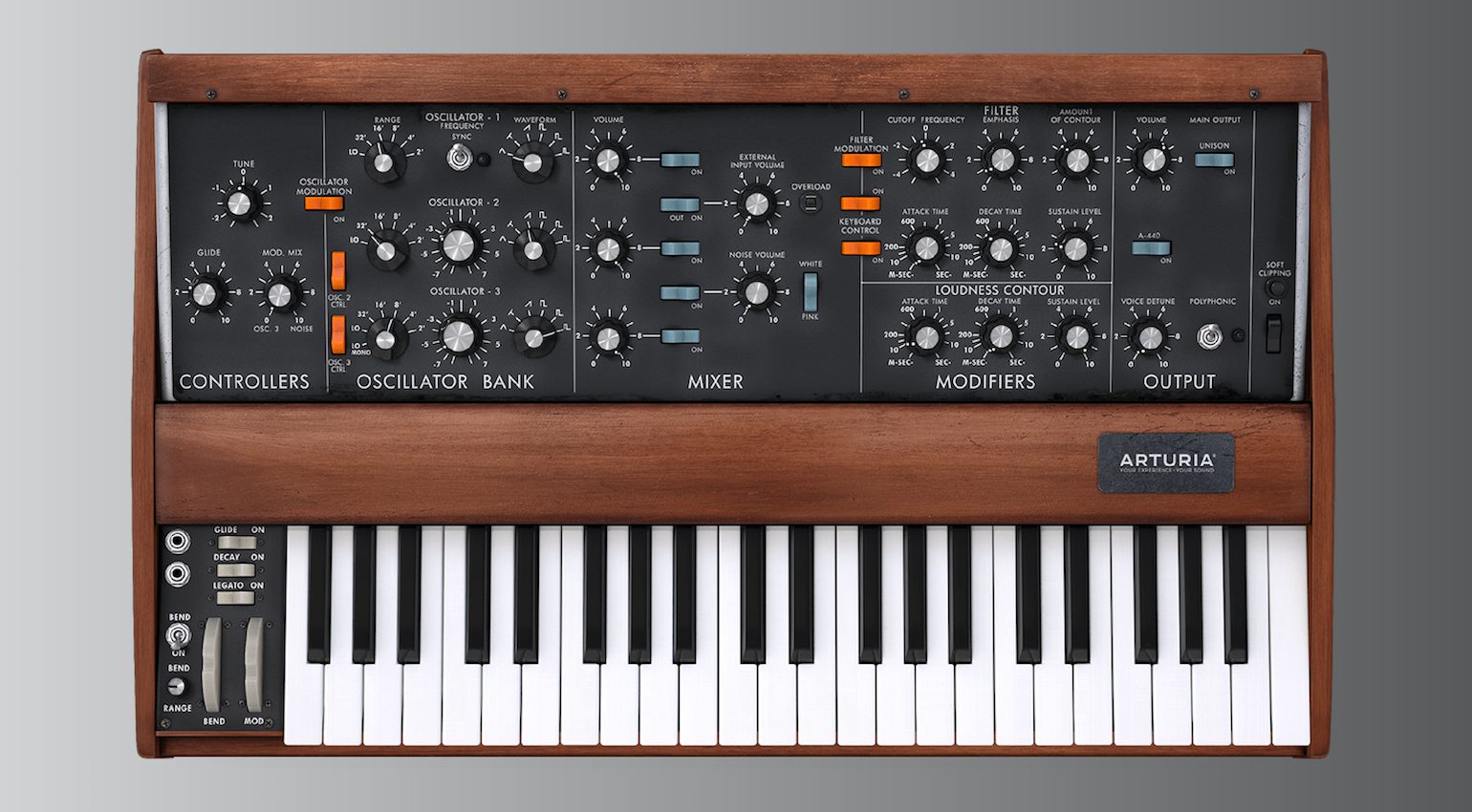
Up to 32-voice polyphony, an extensive mod matrix, and a versatile effects section make the Mini V useful for far more than just basic Minimoog sounds. Like every Arturia plug-in emulation, the Mini V is meticulously modeled on the original and comes with a great bank of patches.
Apart from the affordability, what’s great is the addition of unique sound design features. The motion recorder, for example, gives you powerful time-based synthesis capabilities.
- More from Arturia
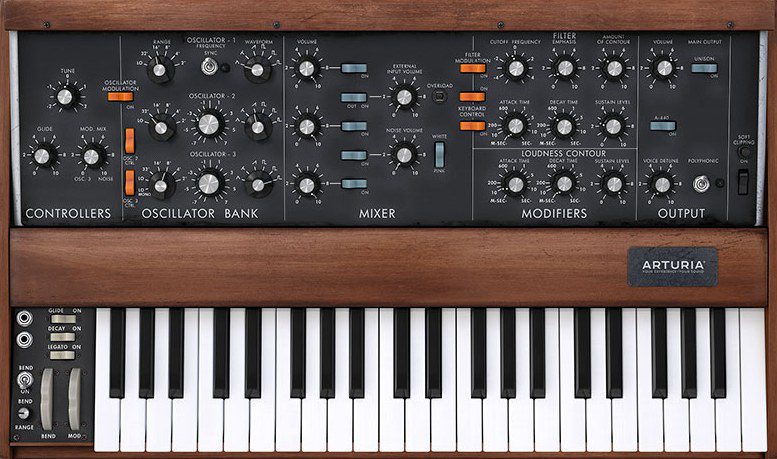
Minimoog Plugins: IK Multimedia Syntronik 2 Minimod
The Minimod is one of 33 classic synths recreated in Syntronik 2. It brings together characteristics from the Model D, the Voyager, and the Moog Modular.
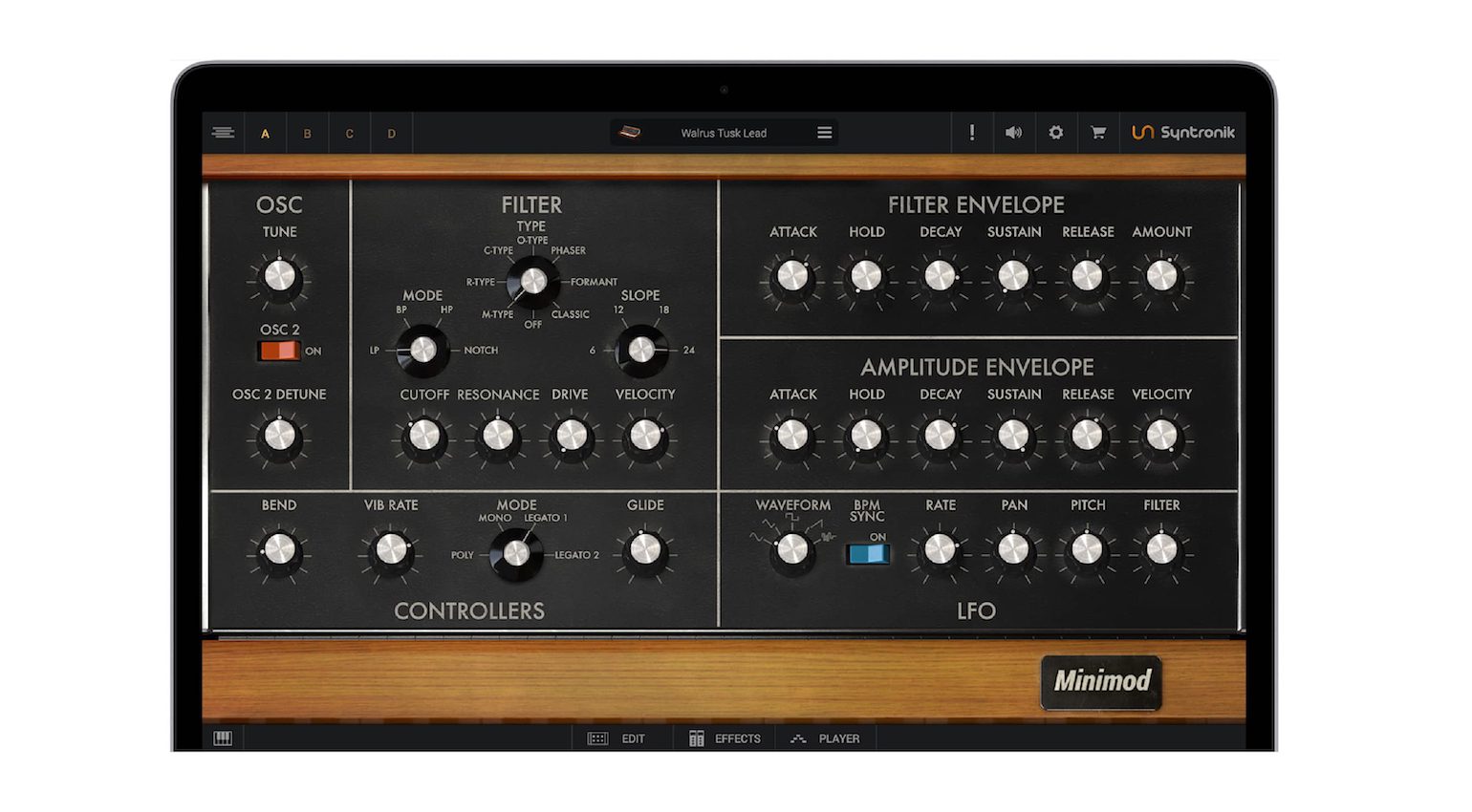
The interface is simple enough and the patches are instantly gratifying, but if you want to dig deeper there are plenty of added features to keep you busy. Apart from the basics like the effects rack and the arpeggiator/sequencer section, the actual synthesis tools are extensive.
With banks of single and multi-oscillator waveforms and four patch layers, you can quickly build your own sounds without needing much experience with analogue synthesis.
- More from IK Multimedia

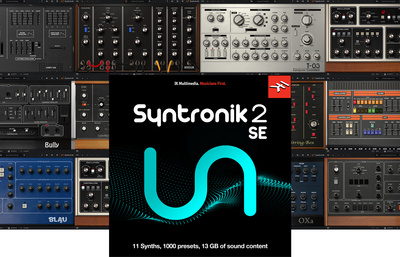
Minimoog Plugins: Moog MiniMoog Model D app
The Model D app is a really great software iteration of the Minimoog. The phenomenal sound engine reproduces the warm analogue goodness with ease and the touch-optimized interface allows easy navigation.
As you browse through the patches, each one seems to sound more gargantuan and tonally detailed than the last. Meanwhile, the app runs on iOS version 10.3 or later, as well as MacOS and supports formats such as AUv3, Ableton Link, Inter-App, and Audiobus.
In addition, you have MIDI CC mapping, Bluetooth MIDI, and MPE capabilities. All you require is a decent interface and you are good to go. Get it here from the App Store.
- More from Moog Music

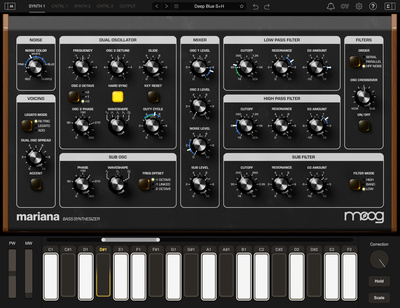
More Model D plugins worth checking out:
Naturally, we haven’t mentioned all of the Minimoog plugins available, so here are some more options to investigate.
- Moog Mariana
- Cherry Audio Minimode
- Synapse Audio The Legend
- GForce Minimonsta
More about Minimoog Plugins:
Videos:
*Note: This Minimoog Plugins article contains affiliate links that help us fund our site. Don’t worry: the price for you always stays the same! If you buy something through these links, we will receive a small commission. Thank you for your support!
2 responses to “Minimoog Plugins: Nostalgia On Tap”
 3,6 / 5,0 |
3,6 / 5,0 | 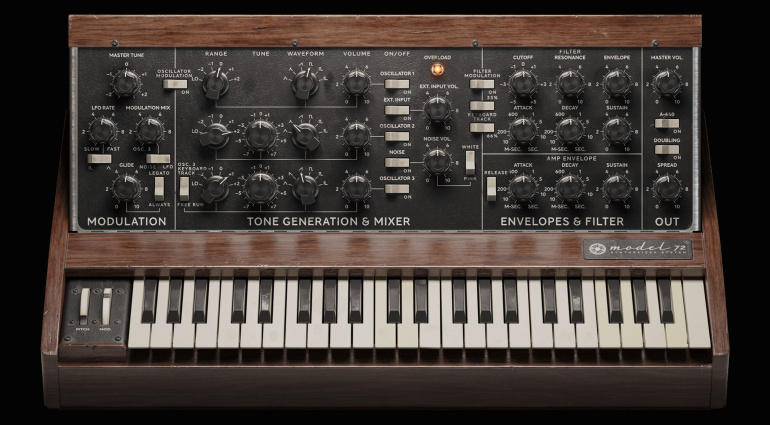



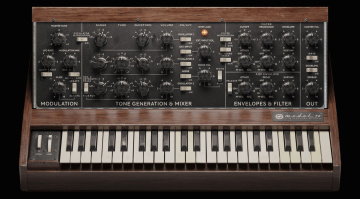

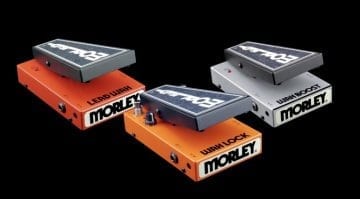

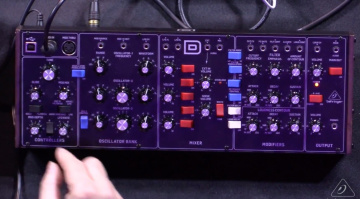
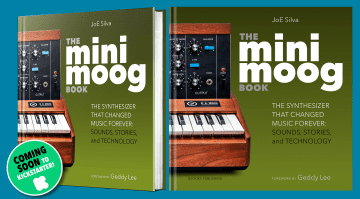

Korg Monologue. Homemade bracket for rear. Behringer Model D on bracket. MIDI connected. Feed from Model D audio out into Monologue audio in. A Model D with a sequencer (and an extra filter) (and 2 Monologue analogue voices that you can tune the Model D with). The output goes into a Korg NTS1 for 3 MIDI syncable effects. All the above plugins, used ’em all, are good. But we simply cannot do what we’re told here in Tronicland, and must cobble stuff together ourselves out of sheer spite. 😎
One notable missing : Akai / AirMusic Mini D, which happens to also run on the MPC in standalone mode.